#capitalism in canada
Text
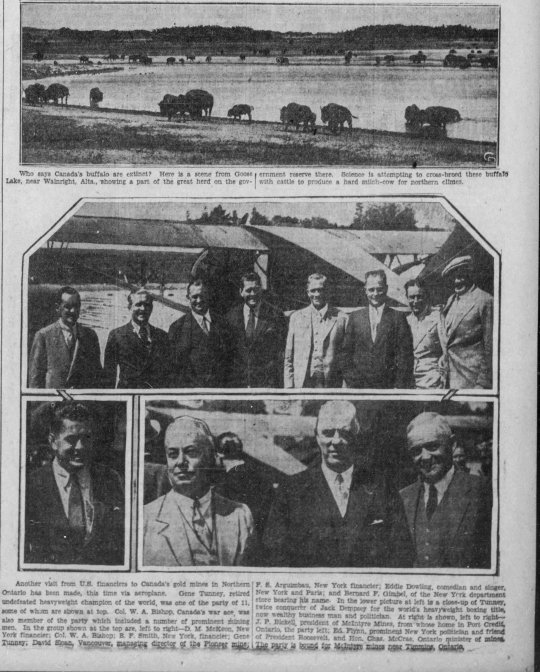
"Who says Canada's buffalo are extinct? Here is a scene from Goose Lake, near Wainright, Alta, showing a part of the great herd on the government reserve there. Science is attempting to cross-breed these buffalo with cattle to produce a hard milch-cow for northern climes.
////
Another visit from US financiers to Canada's gold mines in Northern Ontario has been made, this time vis aeroplane. Gene Tunney, retired undefeated heavyweight champion of the world, was one of the party of 11, some of whom are shown at top. Col. W. A. Bishop, Canada's war ace, was also member of the party which included a number of prominent shining men. In the group shown at the top are, left to right - D. M. McKeon, New York financier; Col. W. A. Bishop; B. F. Smith, New York, financier; Gene Tunney, David Sloan, Vancouver, managing director of the Plonser mine, P. S. Arguimbau, New York financier; Eddle Dowling, comedian and singer, New York and Paris: and Heard P. Gimpel, of the New York department store bearing his name. In the lower picture at left is a close-up of Tunney, twice conqueror of Jack Dempsy for the world's heavyweight boxing title, now wealthy business man and politician. At right is shown, left to right - J. P. Bickell, president of McIntyre Mines, from whose home in Port Credit, Ontario, the party left; Ed Flynn, prominent New York politician and friend of President Roosevelt, and Hon. Chas. McCrae, Ontario minister of mines. The party bound for McIntyre mines near Timmins, Ontario."
- from the Kingston Whig-Standard. June 26, 1933. Page 10.
#northern ontario#timmins#mining company#financial capitalism#stock promoter#financiers#famous athlete#billy bishop#capitalism in canada#gold rush#resource capitalism#great depression in canada#northwestern ontario#resource extraction#vancouver#port credit#bison#the passing of the buffalo#alberta history
23 notes
·
View notes
Text
I'm not saying Canadian truth-in-advertising laws are perfect, but I just got a promotional email with five separate footnoted disclaimers in the space of as many sentences, and it's kind of fun to see exactly how they plan to screw you over clearly outlined in bulleted list format.
10K notes
·
View notes
Text
Greenwashing set Canada on fire
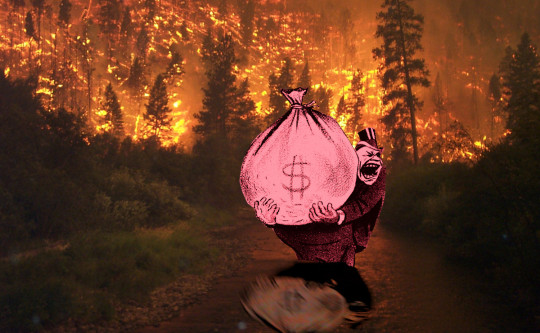
On September 22, I'm (virtually) presenting at the DIG Festival in Modena, Italy. On September 27, I'll be at Chevalier's Books in Los Angeles with Brian Merchant for a joint launch for my new book The Internet Con and his new book, Blood in the Machine.

As a teenager growing up in Ontario, I always envied the kids who spent their summers tree planting; they'd come back from the bush in September, insect-chewed and leathery, with new muscle, incredible stories, thousands of dollars, and a glow imparted by the knowledge that they'd made a new forest with their own blistered hands.
I was too unathletic to follow them into the bush, but I spent my summers doing my bit, ringing doorbells for Greenpeace to get my neighbours fired up about the Canadian pulp-and-paper industry, which wasn't merely clear-cutting our old-growth forests – it was also poisoning the Great Lakes system with PCBs, threatening us all.
At the time, I thought of tree-planting as a small victory – sure, our homegrown, rapacious, extractive industry was able to pollute with impunity, but at least the government had reined them in on forests, forcing them to pay my pals to spend their summers replacing the forests they'd fed into their mills.
I was wrong. Last summer's Canadian wildfires blanketed the whole east coast and midwest in choking smoke as millions of trees burned and millions of tons of CO2 were sent into the atmosphere. Those wildfires weren't just an effect of the climate emergency: they were made far worse by all those trees planted by my pals in the eighties and nineties.
Writing in the New York Times, novelist Claire Cameron describes her own teen years working in the bush, planting row after row of black spruces, precisely spaced at six-foot intervals:
https://www.nytimes.com/2023/09/15/opinion/wildfires-treeplanting-timebomb.html
Cameron's summer job was funded by the logging industry, whose self-pegulated, self-assigned "penalty" for clearcutting diverse forests of spruce, pine and aspen was to pay teenagers to create a tree farm, at nine cents per sapling (minus camp costs).
Black spruces are made to burn, filled with flammable sap and equipped with resin-filled cones that rely on fire, only opening and dropping seeds when they're heated. They're so flammable that firefighters call them "gas on a stick."
Cameron and her friends planted under brutal conditions: working long hours in blowlamp heat and dripping wet bulb humidity, amidst clouds of stinging insects, fingers blistered and muscles aching. But when they hit rock bottom and were ready to quit, they'd encourage one another with a rallying cry: "Let's go make a forest!"
Planting neat rows of black spruces was great for the logging industry: the even spacing guaranteed that when the trees matured, they could be easily reaped, with ample space between each near-identical tree for massive shears to operate. But that same monocropped, evenly spaced "forest" was also optimized to burn.
It burned.
The climate emergency's frequent droughts turn black spruces into "something closer to a blowtorch." The "pines in lines" approach to reforesting was an act of sabotage, not remediation. Black spruces are thirsty, and they absorb the water that moss needs to thrive, producing "kindling in the place of fire retardant."
Cameron's column concludes with this heartbreaking line: "Now when I think of that summer, I don’t think that I was planting trees at all. I was planting thousands of blowtorches a day."
The logging industry committed a triple crime. First, they stole our old-growth forests. Next, they (literally) planted a time-bomb across Ontario's north. Finally, they stole the idealism of people who genuinely cared about the environment. They taught a generation that resistance is futile, that anything you do to make a better future is a scam, and you're a sucker for falling for it. They planted nihilism with every tree.
That scam never ended. Today, we're sold carbon offsets, a modern Papal indulgence. We are told that if we pay the finance sector, they can absolve us for our climate sins. Carbon offsets are a scam, a market for lemons. The "offset" you buy might be a generated by a fake charity like the Nature Conservancy, who use well-intentioned donations to buy up wildlife reserves that can't be logged, which are then converted into carbon credits by promising not to log them:
https://pluralistic.net/2020/12/12/fairy-use-tale/#greenwashing
The credit-card company that promises to plant trees every time you use your card? They combine false promises, deceptive advertising, and legal threats against critics to convince you that you're saving the planet by shopping:
https://pluralistic.net/2021/11/17/do-well-do-good-do-nothing/#greenwashing
The carbon offset world is full of scams. The carbon offset that made the thing you bought into a "net zero" product? It might be a forest that already burned:
https://pluralistic.net/2022/03/11/a-market-for-flaming-lemons/#money-for-nothing
The only reason we have carbon offsets is that market cultists have spent forty years convincing us that actual regulation is impossible. In the neoliberal learned helplessness mind-palace, there's no way to simply say, "You may not log old-growth forests." Rather, we have to say, "We will 'align your incentives' by making you replace those forests."
The Climate Ad Project's "Murder Offsets" video deftly punctures this bubble. In it, a detective points his finger at the man who committed the locked-room murder in the isolated mansion. The murderer cheerfully admits that he did it, but produces a "murder offset," which allowed him to pay someone else not to commit a murder, using market-based price-discovery mechanisms to put a dollar-figure on the true worth of a murder, which he duly paid, making his kill absolutely fine:
https://pluralistic.net/2021/04/14/for-sale-green-indulgences/#killer-analogy
What's the alternative to murder offsets/carbon credits? We could ask our expert regulators to decide which carbon intensive activities are necessary and which ones aren't, and ban the unnecessary ones. We could ask those regulators to devise remediation programs that actually work. After all, there are plenty of forests that have already been clearcut, plenty that have burned. It would be nice to know how we can plant new forests there that aren't "thousands of blowtorches."
If that sounds implausible to you, then you've gotten trapped in the neoliberal mind-palace.
The term "regulatory capture" was popularized by far-right Chicago School economists who were promoting "public choice theory." In their telling, regulatory capture is inevitable, because companies will spend whatever it takes to get the government to pass laws making what they do legal, and making competing with them into a crime:
https://pluralistic.net/2022/06/13/public-choice/#ajit-pai-still-terrible
This is true, as far as it goes. Capitalists hate capitalism, and if an "entrepreneur" can make it illegal to compete with him, he will. But while this is a reasonable starting-point, the place that Public Choice Theory weirdos get to next is bonkers. They say that since corporations will always seek to capture their regulators, we should abolish regulators.
They say that it's impossible for good regulations to exist, and therefore the only regulation that is even possible is to let businesses do whatever they want and wait for the invisible hand to sweep away the bad companies. Rather than creating hand-washing rules for restaurant kitchens, we should let restaurateurs decide whether it's economically rational to make us shit ourselves to death. The ones that choose poorly will get bad online reviews and people will "vote with their dollars" for the good restaurants.
And if the online review site decides to sell "reputation management" to restaurants that get bad reviews? Well, soon the public will learn that the review site can't be trusted and they'll take their business elsewhere. No regulation needed! Unleash the innovators! Set the job-creators free!
This is the Ur-nihilism from which all the other nihilism springs. It contends that the regulations we have – the ones that keep our buildings from falling down on our heads, that keep our groceries from poisoning us, that keep our cars from exploding on impact – are either illusory, or perhaps the forgotten art of a lost civilization. Making good regulations is like embalming Pharaohs, something the ancients practiced in mist-shrouded, unrecoverable antiquity – and that may not have happened at all.
Regulation is corruptible, but it need not be corrupt. Regulation, like science, is a process of neutrally adjudicated, adversarial peer-review. In a robust regulatory process, multiple parties respond to a fact-intensive question – "what alloys and other properties make a reinforced steel joist structurally sound?" – with a mix of robust evidence and self-serving bullshit and then proceed to sort the two by pantsing each other, pointing out one another's lies.
The regulator, an independent expert with no conflicts of interest, sorts through the claims and counterclaims and makes a rule, showing their workings and leaving the door open to revisiting the rule based on new evidence or challenges to the evidence presented.
But when an industry becomes concentrated, it becomes unregulatable. 100 small and medium-sized companies will squabble. They'll struggle to come up with a common lie. There will always be defectors in their midst. Their conduct will be legible to external experts, who will be able to spot the self-serving BS.
But let that industry dwindle to a handful of giant companies, let them shrink to a number that will fit around a boardroom table, and they will sit down at a table and agree on a cozy arrangement that fucks us all over to their benefit. They will become so inbred that the only people who understand how they work will be their own insiders, and so top regulators will be drawn from their own number and be hopelessly conflicted.
When the corporate sector takes over, regulatory capture is inevitable. But corporate takeover isn't inevitable. We can – and have, and will again – fight corporate power, with antitrust law, with unions, and with consumer rights groups. Knowing things is possible. It simply requires that we keep the entities that profit by our confusion poor and thus weak.
The thing is, corporations don't always lie about regulations. Take the fight over working encryption, which – once again – the UK government is trying to ban:
https://www.theguardian.com/technology/2023/feb/24/signal-app-warns-it-will-quit-uk-if-law-weakens-end-to-end-encryption
Advocates for criminalising working encryption insist that the claims that this is impossible are the same kind of self-serving nonsense as claims that banning clearcutting of old-growth forests is impossible:
https://twitter.com/JimBethell/status/1699339739042599276
They say that when technologists say, "We can't make an encryption system that keeps bad guys out but lets good guys in," that they are being lazy and unimaginative. "I have faith in you geeks," they said. "Go nerd harder! You'll figure it out."
Google and Apple and Meta say that selectively breakable encryption is impossible. But they also claim that a bunch of eminently possible things are impossible. Apple claims that it's impossible to have a secure device where you get to decide which software you want to use and where publishers aren't deprive of 30 cents on every dollar you spend. Google says it's impossible to search the web without being comprehensively, nonconsensually spied upon from asshole to appetite. Meta insists that it's impossible to have digital social relationship without having your friendships surveilled and commodified.
While they're not lying about encryption, they are lying about these other things, and sorting out the lies from the truth is the job of regulators, but that job is nearly impossible thanks to the fact that everyone who runs a large online service tells the same lies – and the regulators themselves are alumni of the industry's upper eschelons.
Logging companies know a lot about forests. When we ask, "What is the best way to remediate our forests," the companies may well have useful things to say. But those useful things will be mixed with actively harmful lies. The carefully cultivated incompetence of our regulators means that they can't tell the difference.
Conspiratorialism is characterized as a problem of what people believe, but the true roots of conspiracy belief isn't what we believe, it's how we decide what to believe. It's not beliefs, it's epistemology.
Because most of us aren't qualified to sort good reforesting programs from bad ones. And even if we are, we're probably not also well-versed enough in cryptography to sort credible claims about encryption from wishful thinking. And even if we're capable of making that determination, we're not experts in food hygiene or structural engineering.
Daily life in the 21st century means resolving a thousand life-or-death technical questions every day. Our regulators – corrupted by literally out-of-control corporations – are no longer reliable sources of ground truth on these questions. The resulting epistemological chaos is a cancer that gnaws away at our resolve to do anything about it. It is a festering pool where nihilism outbreaks are incubated.
The liberal response to conspiratorialism is mockery. In her new book Doppelganger, Naomi Klein tells of how right-wing surveillance fearmongering about QR-code "vaccine passports" was dismissed with a glib, "Wait until they hear about cellphones!"
https://pluralistic.net/2023/09/05/not-that-naomi/#if-the-naomi-be-klein-youre-doing-just-fine
But as Klein points out, it's not good that our cellphones invade our privacy in the way that right-wing conspiracists thought that vaccine passports might. The nihilism of liberalism – which insists that things can't be changed except through market "solutions" – leads us to despair.
By contrast, leftism – a muscular belief in democratic, publicly run planning and action – offers a tonic to nihilism. We don't have to let logging companies decide whether a forest can be cut, or what should be planted when it is. We can have nice things. The art of finding out what's true or prudent didn't die with the Reagan Revolution (or the discount Canadian version, the Mulroney Malaise). The truth is knowable. Doing stuff is possible. Things don't have to be on fire.



If you'd like an essay-formatted version of this post to read or share, here's a link to it on pluralistic.net, my surveillance-free, ad-free, tracker-free blog:
https://pluralistic.net/2023/09/16/murder-offsets/#pulped-and-papered
#pluralistic#logging#pulp and paper#ontario#greenwashing#a market for lemons#incentives matter#capitalism#late-stage capitalism#climate emergency#wildfires#canada#canpoli#ontpoli#carbon offsets#self-regulation#nerd harder#epistemological chaos#regulatory capture#Claire Cameron#pines in lines
3K notes
·
View notes
Text
Anyone else ever feel like bludgeoning oil executives and politicians to death with a rusty pipe over what they’ve doomed us all to?
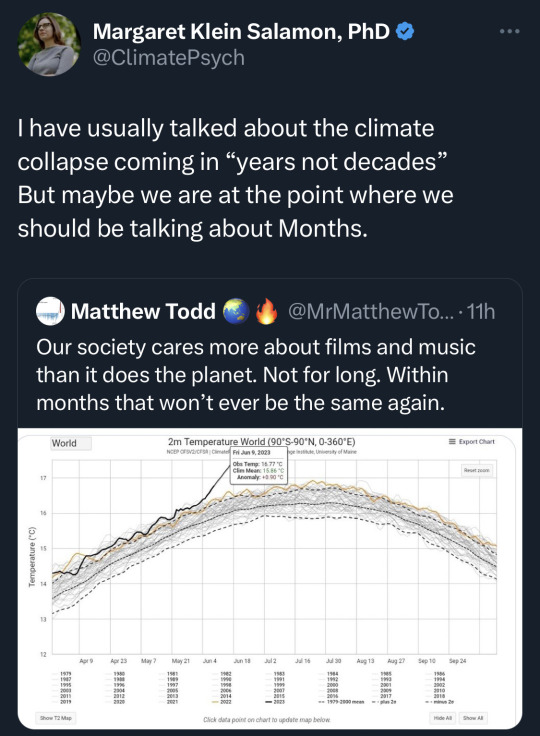
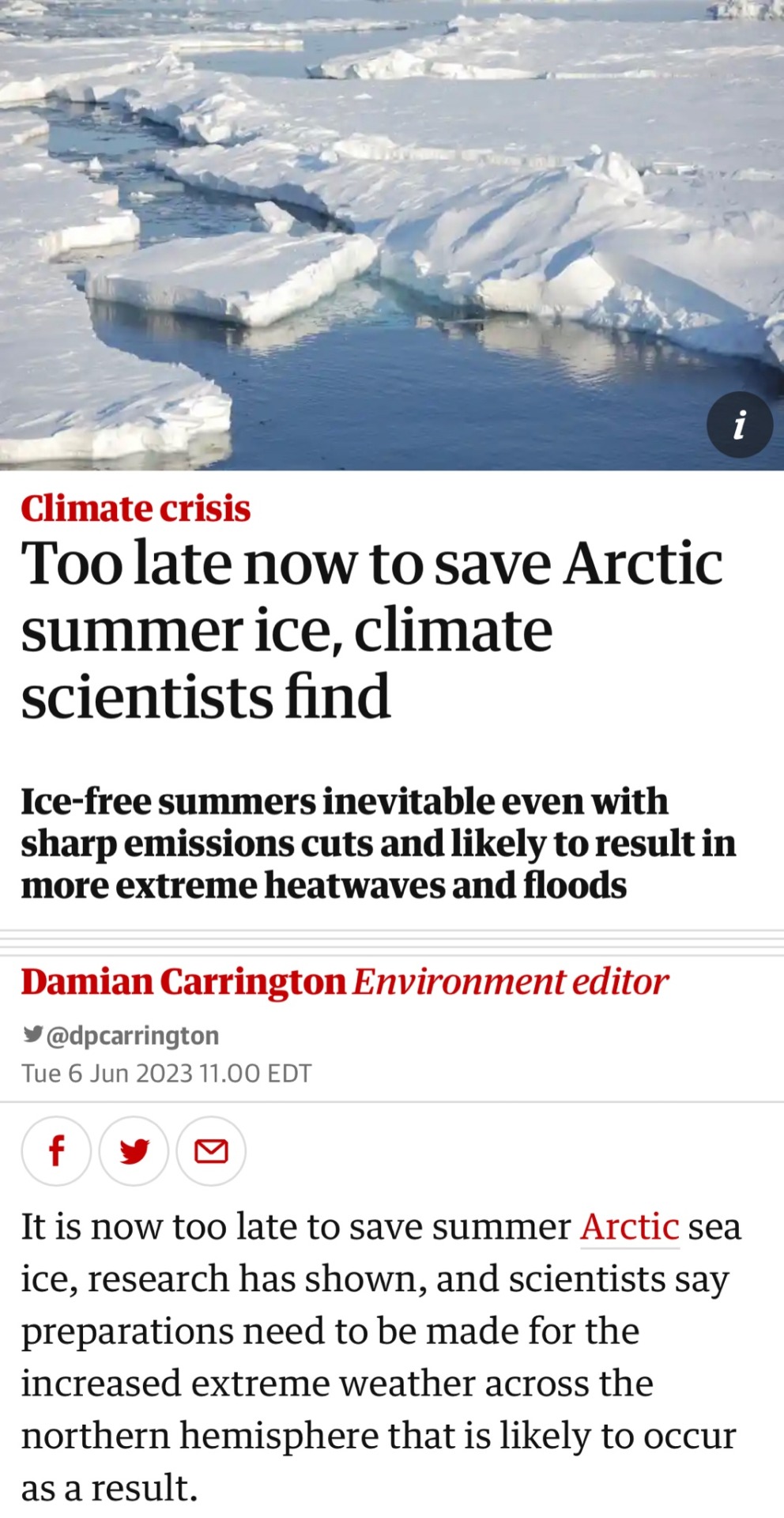
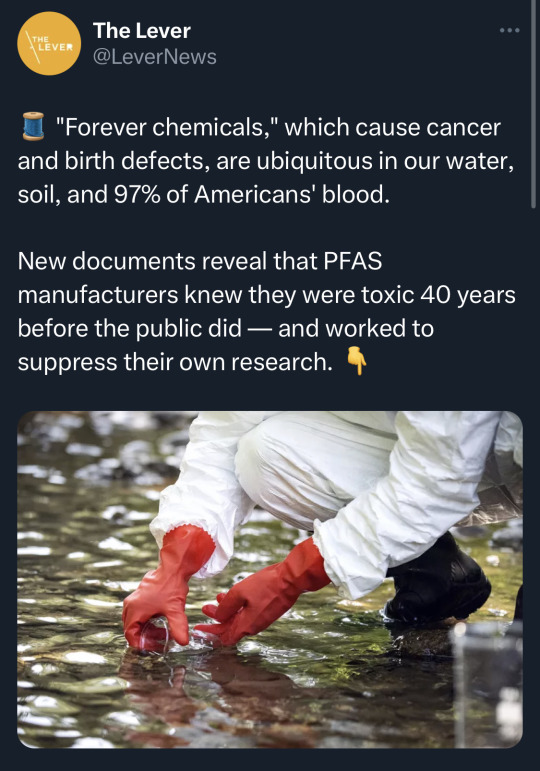
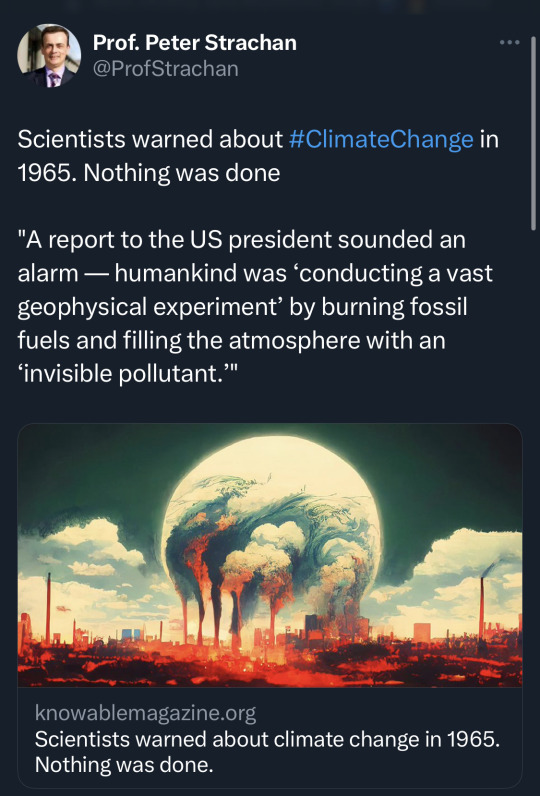
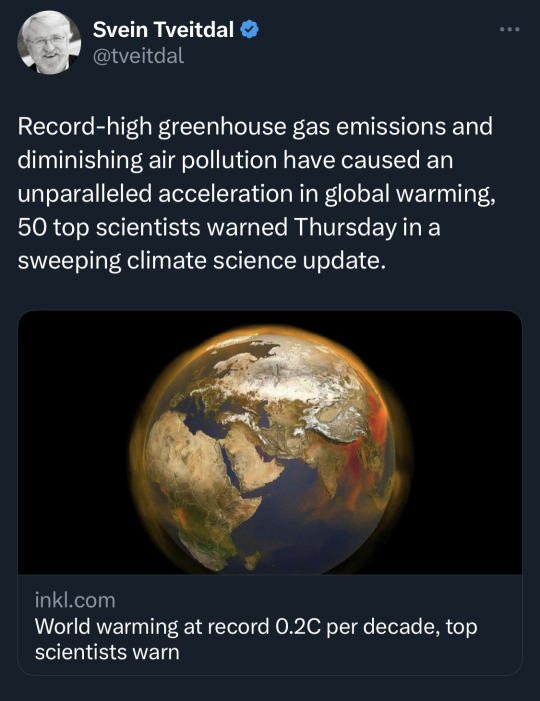



Capitalism is a death sentence for the human race
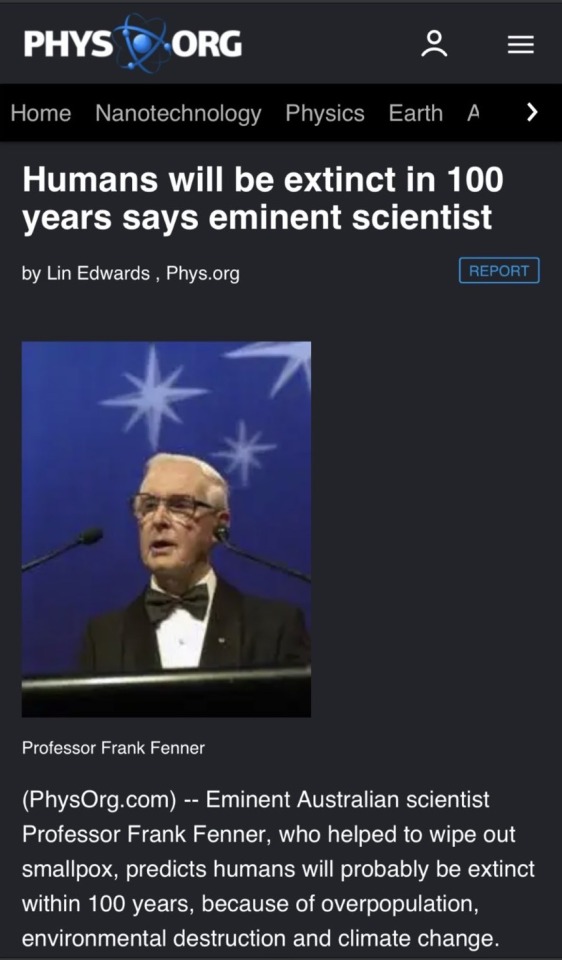
#climate crisis#climate change#climate news#wildfires#canada wildfires#new york#capitalism#eat the rich#joe biden#us politics#wealth inequality#late stage capitalism#vote#climate emergency#climate action#climate war#just stop oil#fossil fuels#oil industry#there is no planet b#ice cap
941 notes
·
View notes
Text
A new survey conducted by Research Co. found that the majority of Canadians support tying speeding tickets to income, otherwise known as “progressive punishment.”
According to the survey published on Friday, 65 per cent of Canadians surveyed endorse implementing progressive punishment for speeding tickets in their city. In addition24 per cent of respondents opposed the concept while 11 per cent are undecided.
Progressive punishment system has been implemented in some European countries such as Finland and Switzerland. Authorities in Finland set the fines on the basis of disposable income of the offending driver and how much speed the offending driver went over the posted limit. [...]
Continue Reading.
Tagging: @politicsofcanada
1K notes
·
View notes
Text
Tumblr! Saw a similar poll about Australia and thought doing a Canadian version would be fun so! (Please only vote if you’re not Canadian!)
134 notes
·
View notes
Text

#Nhs#healthcare#america#democrats#republicans#politics#donald trump#twitter#twitter quotes#news#canada#spain#italy#japan#anti capitalism#ireland
2K notes
·
View notes
Text
Ben Gurion Canal Project
The Ben Gurion Canal Project[citation needed] is a proposed canal project through the state of Israel. It would connect the Gulf of Aqaba to the Mediterranean Sea.[1][2][better source needed] David Ben Gurion, for whom it would be named, is considered the Founding Father of Israel and was the first Prime Minister of Israel.
The canal would rival the Suez Canal, which runs through Egypt and has had many disturbances in its history, such as the Israeli blockage through the Suez Canal and Straits of Tiran, Closure of the Suez Canal (1956–1957), Closure of the Suez Canal (1967–1975), and the 2021 Suez Canal obstruction.[1] It would be slightly more than 50% longer than the 120.1 mi (193.3 km) Suez Canal, at around 182 mi (292.9 km).[2]
Canada/US' quiet motive for backing Israel's genocide: the Ben Gurion Canal
from November 14, 2023
The United States, Israel, Canada and their allies are fiercely determined not to permit a ceasefire, considering their aligned interests. Their deliberate and joint offensive in the Gaza Strip is a clear indication of a long-term strategic plan, characterized by continuous air and ground attacks. This collaboration, which has tragically led to the loss of over 10 000 Palestinian lives, including a significant number of children, is not just a coincidence. It is the result of a well-coordinated military strategy, driven by shared economic and geopolitical objectives among these nations.
#tiktok#Ben Gurion Canal Project#palestine#colonization#colonialism#capitalism is violence#war crimes#imperialism#genocide#canada#united states#suez canal#wikipedia#article
207 notes
·
View notes
Text
This has to be the worst union contract I've heard of
815 notes
·
View notes
Text
I hate the Hollywood culture. America often seems to revere Writers/Actors/Executives/ etc as gods. And I dislike that. People from places outside of America are encouraged to come to LA or to NYC to make it big. In this way, a new form of american exceptionalism poaches talent from other countries. It's despicable. I hope these strikes crush this hollywood machine, but I doubt it will. This is still all happening in the US, and I don't think enough Americans hate hollywood for these reasons. So I doubt it.
#sag strike#sag aftra#anti hollywood#anti capitalism#american exceptionalism#in a way#anti america#wga strike#writers strike#actors strike#sag aftra strike#canada
86 notes
·
View notes
Text

"Conspiracy of Hunger," The Unemployed Worker. May 24, 1933.
===
A starvation cut at the Relief Office
#vancouver#national unemployed workers association#unemployed association#unemployed workers' association#starvation#unemployment relief#relief cut#austerity politics#austerity measures#starve or freeze#capitalism in canada#great depression in canada#communists
20 notes
·
View notes
Text
Christmas in Victoria B.C.

A recent survey named Victoria as the best small city in the world
#Victoria#British Columbia#Legislative Buildings#waterfront#harbour#Christmas lights#Pacific Ocean#small cities#B.C.#picturesque#provincial capital#sailboats#winter#Canada
39 notes
·
View notes
Text
Canadian hit list.
50 notes
·
View notes
Text
Apparently the Palestinian flag will be projected via lights on a bridge in Edmonton
#of all places in Canada fucking EDMONTON ALBERTA (ALBERTA??) supporting Palestine#rare Edmonton win but still#you know you have to be fucked up if one of the most conservative provinces capital city in Canada doesnt even support you
43 notes
·
View notes
Text
When Canada Goose employees received an email on Monday, March 25, telling them not to come into the office the following day, they feared the worst.
The last time they received a directive like that was in August and it preceded a round of layoffs.
This time around there were terminations too, but with one key difference: people were informed of their layoff from the luxury parka maker via email.
The decision to approach terminations this way was described as “inhumane,” and “disheartening” by three former employees who spoke with Global News and shared some of the email communications they received on condition of anonymity.
Global is protecting their identities as they fear repercussions for speaking with the media and worry it may harm their future employment prospects. [...]
Continue Reading.
Tagging: @newsfromstolenland
41 notes
·
View notes
Text
The fact that Canada allows landlords to evict people without a serious justification will always itch my brain.
This is legal theft. Why the hell is this even legal???
They're taking back people's home, but people are never getting their money back. This is seriously boiling my blood...
That landlord robbed 150 people, has gained 150 enemies and it's a normal day for that fucker.
Put these landlords to prison, this is not normal, what the fuck. They're in freedom and it will happen again to other people... Again, and again. Because those politicians allow crimes like these.
23 notes
·
View notes